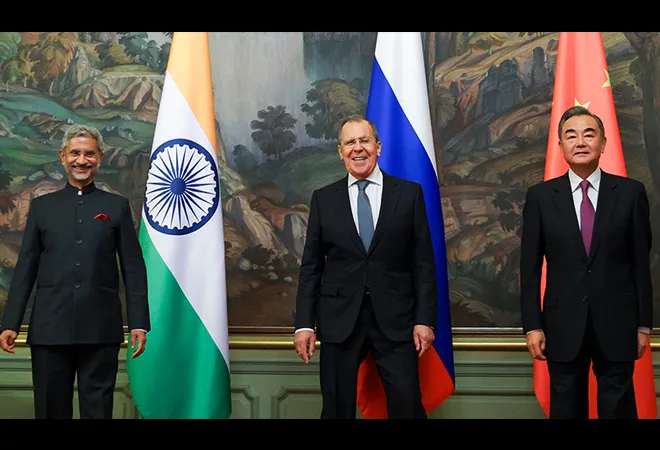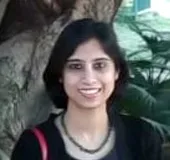As India-China tensions along the Line of Actual Control continue to escalate, India decided to pull out of Russia’s Kavkaz 2020 (or the Caucasus-2020) military exercises (September 15-26), where it was scheduled to participate alongside other Shanghai Cooperation Organisation (SCO) member states. While COVID-19 was cited as the official reason, it was the situation on the border with China that most likely prompted this decision.
LAC issue and Moscow’s role
New Delhi’s decision has led to questions about the possible impact of deteriorating India-China relations on the India-Russia partnership. Earlier in June, the Russia-India-China Foreign Ministers meeting, convened at Moscow’s initiative and coming days after violent border clashes that led to the death of 20 Indian soldiers, ended without an official communiqué. It is hardly surprising that ongoing conflict between two prominent members, and both close partners of Russia, has given rise to concerns about its impact on India-Russia ties.
But this is only one side of a complicated story. Moscow has been playing a quiet diplomatic role during the recent border clashes without actively taking sides. India’s Russia engagement has remained steady and Defence Minister Rajnath Singh visited Russia in June for the 75th Victory Day parade. He was in Moscow again on September 4 to attend the SCO Defence Ministers’ Meeting, which also formed the setting for the bilateral meeting with his Chinese counterpart. These visits saw detailed discussions around furthering the India-Russia defence relationship alongside the promise to accelerate certain supplies based on New Delhi’s requirements.
The September visit coincided with the biannual Indo-Russian naval exercises, INDRA, in the Andaman and Nicobar Islands, in the strategically crucial waters of the Indian Ocean. India’s External Affairs Minister S. Jaishankar attended the online BRICS foreign ministers meeting on September 4 and also travelled to Moscow for the SCO Foreign Ministers meeting (September 9-10). In fact, in November, India will host the SCO Heads of Government Meeting.
Forums are crucial
The multilateral forums are important as they foster continued India-Russia cooperation at the bilateral and multilateral levels. While increasingly divergent foreign policies of its members pose challenges of agenda-setting and overall scope, it also underscores that at this moment of flux, countries such as India and Russia are keeping all their options open. India was to have hosted the Quad foreign ministers meeting, but the venue is likely to be now shifted to Tokyo. So alongside this, if this flurry of activity looks contradictory, it should not be surprising given the changes under way in the global order.
Mr. Jaishankar has noted that we live in a ‘curious world’ where one cannot view engagement with different parties as a ‘zero-sum game’. As a result, worsening India-China ties or a burgeoning China-Russia relationship does not automatically mean a breakdown of the India-Russia strategic partnership. In fact, India and Russia have spent the past few years strengthening their partnership, particularly since the 2018 Sochi informal summit. From substantive defence engagement to regional questions in Central Asia, Afghanistan and West Asia, a conversation with Moscow remains an important element of Indian foreign policy.
India and Russia are pragmatic players looking at maximising their strategic manoeuvrability, which understandably has led them to align with different powers based on their respective geopolitical positioning. Both recognise the value of having a diversified portfolio of ties. This is not to deny that external events will have no impact on the partnership. But in order to understand this, one cannot see the India-China clashes in isolation.
China-Russia ties
In fact, a more aggressive China is a result of its rise that has led to a change in the existing balance of power. It is this systemic change that is likely to produce a long-term shift in India’s posture, prompting it to take tougher, decisive positions. It is the combination of a changing regional order, closer Russia-China ties and India’s alignment with the United States and other like-minded countries to manage Beijing’s rise that has the potential to create hurdles for India-Russia cooperation in the Asia.
While India would like to secure Russian support in this changing Asian regional order, the latter has seen China become its key partner as relations with the West have hit a new post-Cold war low since 2014. This has led to a qualitative improvement in its ties with Beijing as the superpower looks to partner with a strong external player that can balance the West. The U.S. policy towards Russia has further pushed the latter towards China, strengthening the rising power, to the detriment of both Indian and western interests. While Russia has acknowledged that the Indian and Association of Southeast Asian Nations concepts of the Indo-Pacific do not include the aim of containment of another power, it has been critical of the American conception of the region that in its strategy classifies China as a revisionist power.
India on its part has sought to include Russia in its vision of the Indo-Pacific that does not see the region as ‘a strategy or as a club of limited members’. In fact, Prime Minister Narendra Modi during his 2019 visit to Vladivostok contextualised the cooperation in the Russian Far East as ‘a confluence of the Eurasian Union on one side and the open, free and inclusive Indo-Pacific on the other’ in an effort to bridge the strategic visions of the two countries. As part of the same effort, reports indicate that a proposal for a India-Russia-Japan trilateral is being explored.
A world split into two blocs would be detrimental to the interests of both New Delhi and Moscow — squeezing the space available for hedging — and that makes it imperative that seeming contradictions in their respective policies are managed pragmatically while taking a long-term view of the strategic partnership. Although the evolving global order makes it difficult for India and Russia to pursue fully convergent policies, it does not preclude the bilateral relationship from retaining its relevance. The strategic space both provide to each other is critical and only underscores the need to insulate their bilateral relationship from the vagaries of the international system.
This commentary originally appeared in The Hindu.
The views expressed above belong to the author(s). ORF research and analyses now available on Telegram! Click here to access our curated content — blogs, longforms and interviews.




 PREV
PREV



